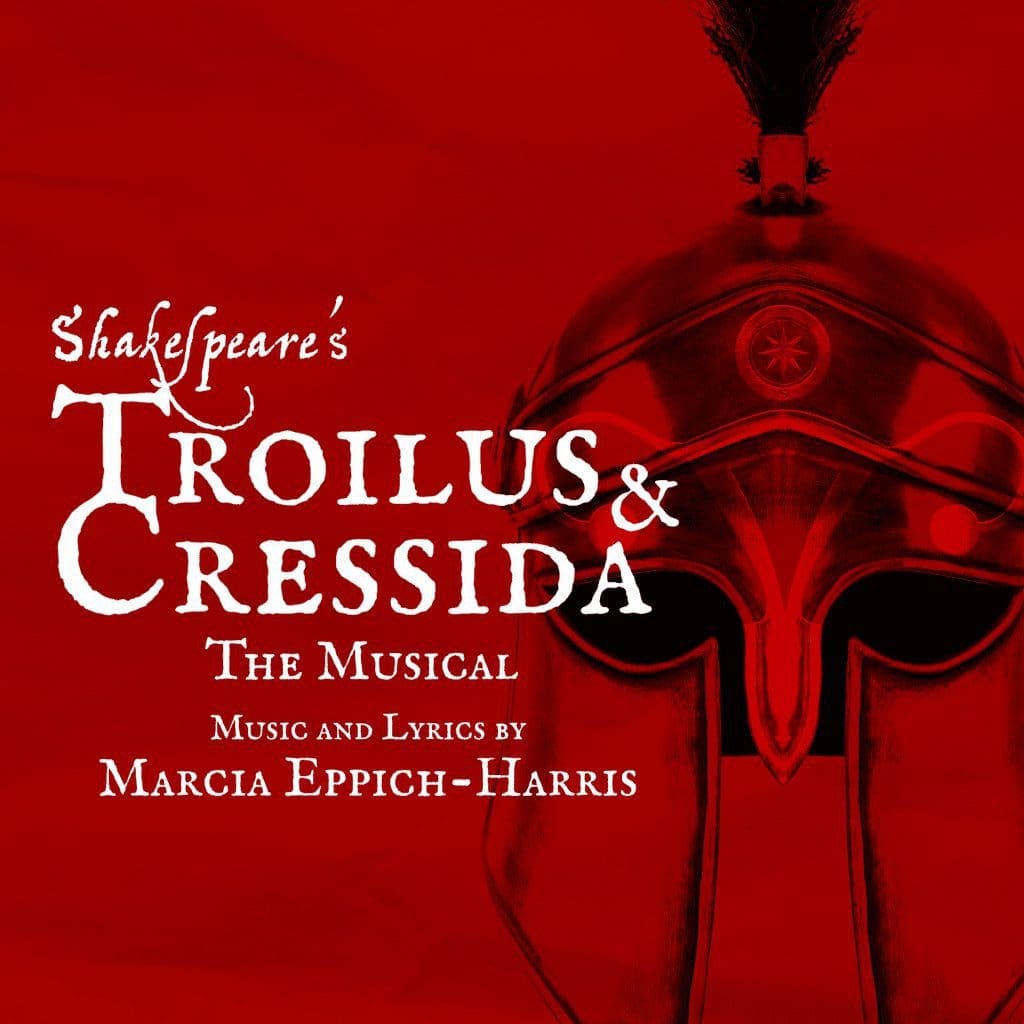
Join the princess and prophetess, Cassandra, in Troy for Marcia Eppich-Harris’s musical adaptation of Shakespeare’s Troilus and Cressida.
The Greeks and Trojans have reached a stalemate as the Trojan War enters its seventh year. As soldiers on both sides debate where to go from here, the Trojan prince, Troilus, occupies himself with thoughts of love for Cressida, whose father has defected to the Greeks. Meanwhile, Cressida, Helen, and Cassandra wonder how to protect their hearts, minds, and bodies in a world that views them as nothing more than property.
Content Advisory: This show contains frank discussion of sexual assault and the effects of war on women and children. Recommended for audiences 16 and up.
Troilus: Matthew Walls
Cressida: Amalia Howard
Cassandra: Yolanda Valdivia
Pandarus: Paul Hansen
Ulysses: Kevin Bell
Agamemnon: Rachel Snyder
Achilles: Brant Hughes
Patroclus: Will Harris
Thersites: Anthony Nathan
Ajax: Kendall Maxwell
Diomedes: Nick Asher
Aeneas: Aaron Henze
Paris: Robert Beltz
Helen: Carolyn Rae Lynch
Andromache: Jennifer Kaufmann
Priam and Menelaus: Karen Webster-Cones
Iphigenia and Servant: Lane Snyder
Conductor and Music Director: Seth Young
Violins: Pasha Miller and Evan McFall
Cello: Kathy Burrell
Percussion and percussion arrangements: Eric Wood
Piano: Mina Keohane & Kathy Ryan
Guitar: Eddie McLaughlin
Bass: Aric Harris
Director: Marcia Eppich-Harris
Stage Manager: Nikki Sayer
Assistant Director: Paul Hansen
Vocal Coach: Jeanne Bowling
Choreographer: Natalie Marchal
Assistant Choreographer: Karen Webster-Cones
Dance Captain: Yolanda Valdivia
Cast Captains: Matthew Walls & Amalia Howard
Dramaturg: Donna McFadden
Intimacy Direction: Lola Lavacious
Set Design: Nick Kilgore
Set Build & Paint: Aric Harris, Rachel Snyder, Kai Harris, Marcia Eppich-Harris, Casey Ross
Costumer: Karen Webster-Cones
Lighting Design: Eric Matters
Light Board Operator: Jonah Charpie
Sound Design: Eric Matters
Sound Board Operator: Nikki Sayer
Fight Choreographer: Kevin Robertson
Assistant Fight Choreographer: Eli Robinson
Fight Choreography Filming: Jen Robinson
Fight Captains: Brant Hughes & Matthew Walls
Marketing & Social Media Intern: Zachary Hodges
Stage Manager Intern: Audrey Kunce
Butler Arts and Events Technical Director: Joey Wever

 Marcia Eppich-Harris is the artistic director and founder of Southbank Theatre Company in Indianapolis. She holds a PhD and MA in Shakespeare and Dramatic Literature, as well as a BA in Music, and taught at the college level for over fifteen years. She is a playwright and a founding member of the Indiana Playwrights Circle (IPC), where she is the Scene Nights Coordinator and serves on the steering committee. Marcia’s writing includes plays, fiction, poetry, scholarship, songs, and reviews. Her creative writing is influenced by the literature and history of the ancient Greeks and Romans, the British Medieval and Renaissance periods, as well as current events. She focuses thematically on politics, philosophy, the arts, gender, family, and culture. Her most recently productions include a variety of short plays and performances of her full-length plays The Profession, which is being published by Next Stage Press in 2023, and Seneca and the Soul of Nero. While Marcia has written dozens of songs over the years, Troilus and Cressida is her first musical.
Marcia Eppich-Harris is the artistic director and founder of Southbank Theatre Company in Indianapolis. She holds a PhD and MA in Shakespeare and Dramatic Literature, as well as a BA in Music, and taught at the college level for over fifteen years. She is a playwright and a founding member of the Indiana Playwrights Circle (IPC), where she is the Scene Nights Coordinator and serves on the steering committee. Marcia’s writing includes plays, fiction, poetry, scholarship, songs, and reviews. Her creative writing is influenced by the literature and history of the ancient Greeks and Romans, the British Medieval and Renaissance periods, as well as current events. She focuses thematically on politics, philosophy, the arts, gender, family, and culture. Her most recently productions include a variety of short plays and performances of her full-length plays The Profession, which is being published by Next Stage Press in 2023, and Seneca and the Soul of Nero. While Marcia has written dozens of songs over the years, Troilus and Cressida is her first musical.
William Shakespeare was an English playwright, poet and actor. He is widely regarded as the greatest writer in the English language and the world’s greatest dramatist.
Southbank Theatre Company is a nonprofit, tax exempt 501(c)3. That means every financial contribution is tax deductible! No matter how big or small, your contribution supports theatre artists and the stories they bring to our audiences. With your help, we will be able to build a sustainable, creative company in Indianapolis that will celebrate emerging and established artists from all backgrounds.